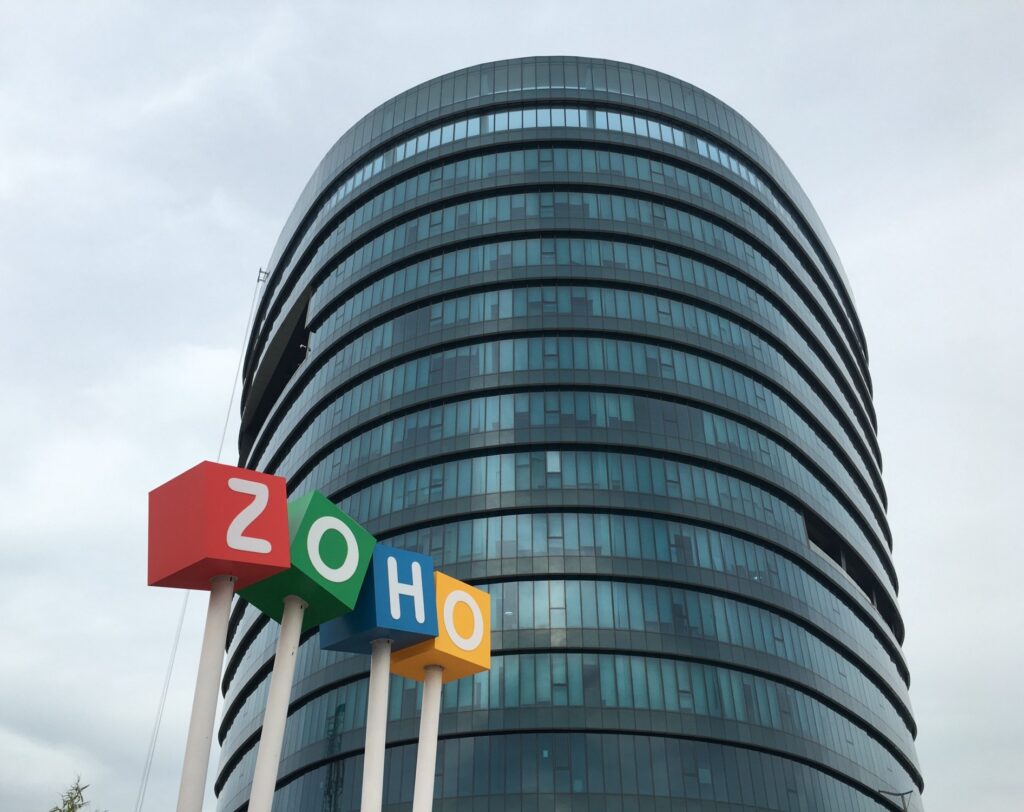In recent years, Zoho has been a major point of discussion among small business owners and SaaS industry experts alike. Many people wonder how a small Indian software development company grew to one of the largest SaaS companies in India. As well as, offering some of the best business software on the global market. After all, Zoho offers a much wider range of products than any other provider, yet it still manages to price its products more affordably than any of the other market leaders.
Although some companies have begun to drop their prices to compete with Zoho, there is no denying that Zoho is a truly unique company that stands out in the marketplace. What makes Zoho so unique? Read on to learn Zoho’s story.
From Humble Beginnings
When Zoho was founded in 1996, its founders and team never imagined the company would become what it has turned into today. In fact, Zoho was founded as Advent Network Management Inc., a company specializing in offering network management solutions. ANM mostly focused on networking for printers and helping companies to get their Wi-Fi working correctly.
The company coded its own software that improved printer networking, and it marketed this software to firms offering optical solutions. Gradually, ANM began to learn the importance of creating great software and providing it to a close group of customers. Most importantly, the company quickly learned the importance of great customer support.
Eventually, ANM decided to expand the scope of its business software offerings. Consequently, it renamed itself AdventNet. In 2005, AdventNet introduced Zoho CRM. Other key Zoho applications, including Creator, Projects, and Sheets, came shortly after. The company then began its well-known business model of widening the range of the software it offers every year.

By the time AdventNet was renamed Zoho in 2009, the company was already offering a variety of business software tools. Although these tools were not widely used at the time since the value of using digital technology was still new. Zoho seeing this value early on put them ahead of the game for the decade to come.
Where People Come First
Zoho was an early mover in the small business SaaS market, but its early leadership is not the only reason why its products stand out today. Zoho has always focused on putting its people first. The company’s philosophy is that when when you treat people like family, they will naturally feel a strong sense of drive and motivation. Thus improving their work performance.
Many of the people who worked at Zoho in the early days continue to work for the company, and Zoho encourages all of its team members to stick around until retirement. Consequently, Zoho is able to build a culture where going to work is like being with friends and family. When building close relationships over time, team members can work together more effectively. There is an appreciation for their efforts, and feel the confidence needed to exhibit true loyalty to their company.
As a result of how Zoho respects its people, most of Zoho’s products and product features have been developed in a democratized way by team members. Every idea and implementation has value. The bottom line is that Zoho’s uniquely vast range of products and features emerges as a result of its people-first philosophy.

Avoiding Debt to Stay Free
After the dot com bubble hit in the early 2000s, Zoho went through a period where it lost a lot of its customer base. Nevertheless, Zoho was one of the few companies to survive since they were debt-free. Since the company did not have any major liabilities that had to be paid on a continuous basis, Zoho was able to regroup and ride out the difficult time.
Today, Zoho has not forgotten the lessons it learned in the dot com era. Other major tech companies issue bonds and borrow money to buy back their own stock, Zoho continues to stay debt-free. Consequently, Zoho can take the risks it chooses without worrying about bankruptcy.
Creating everything in-house is another major factor in their success. If there is a software solution they need, Zoho builds it themselves. By cutting out the middle-man for different solutions Zoho can even further control their costs. An example is Zoho went ahead and built their own data centers to host and manage all their data.
Staying Private and Closely-Held
Going public is the goal of nearly every entrepreneur. Once a company goes public, entrepreneurs can theoretically treat their stock like free cash. IPOs also raise capital for a company. Although IPOs are a major trend, Zoho has never seen the need to make use of them.
When companies go public, they can never be the same again. Public companies become obligated to focus on relatively myopic investments that will yield a return in the near term. In contrast, as a private company, Zoho is free to continue reinvesting into R&D without needing justification from investors.
The other major advantage of staying private is that Zoho does not have to care about disclosures, public scandals, securities laws, and other factors that can choke out even the most promising companies. Zoho is accountable only to the Vembu family that founded it and continues to manage its day-to-day operations. As a result, Zoho can make bold investments and put its customers first in ways that public companies cannot.
Why Zoho’s Products Are so Affordable
When considering all of these factors, it is no surprise that Zoho stands out in the marketplace. Every company talks about wanting to achieve long-term growth, but it is very rare for companies to actually put in the investment and work required to achieve that growth over an extended period of time. Nearly all of the revenue that Zoho earns from its product sales is put straight back into product development. Consequently, Zoho’s products get better every year while other competing companies get complacent with one or two successful products.

Additionally, like most SaaS businesses, Zoho understands the importance of using inexpensive offerings to boost adoption. Since Zoho’s products are far less expensive than other competing offerings, Zoho has been able to grow its revenue every year at a time when many similar companies are seeing their growth slow.
From Zoho’s point of view, charging fair prices for its services is common sense. When customers get extraordinary value for their money, they will tell their friends about their experiences and continue to stick around for years to come. Consequently, Zoho continues to double down on product development to create market-leading offerings that continue to get better.
Looking to the Future
In the years ahead, Zoho will continue to invest in its people and its products to make its offerings even more competitive in the marketplace. As a result, even more, businesses will continue to switch to Zoho while SaaS businesses dependent on outdated pricing models will most likely begin to struggle. Therefore, Zoho’s customers, employees, and consultants will continue to reap the benefits of more product features, further product optimization, and a wider range of new products that can introduce powerful new functionality.
We want our customers to reap the fruits of our technology and productivity, without having to pay the market price for it.
Sridhar Vembu
CEO and Co-founder


